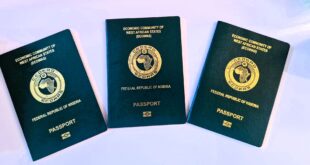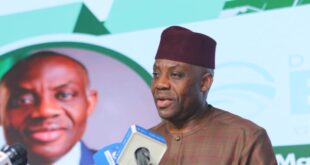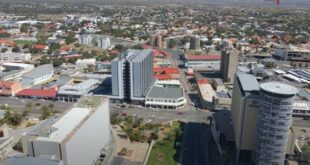A high-powered diplomatic move to resolve the gathering crisis in The Gambia seems to have suffered a setback. A delegation of West African leaders failed to convince Gambian President Yahya Jammeh on Tuesday to hand over power to opposition leader, Adama Barrow, who defeated him at the presidential election held on 1 December.
The leaders – Presidents Muhammadu Buhari of Nigeria, Ellen Johnson-Sirleaf (Liberia), John Mahama (Ghana) and Ernest Bai Koroma (Sierra Leone) met Jammeh on Tuesday in Banjul to deliver the message of the United Nations, African Union and the regional Ecowas to him, which is that he should respect the wish of the Gambian people as represented by the result of the 1 December election and hand over power to Barrow.
Jammeh is said to have refused the entreaties of the visiting presidents insisting that his party had taken the matter to the Supreme Court in accordance with the Gambian constitution and the court should be allowed to decide the case.

The legal petition filed by Jammeh’s ruling Alliance for Patriotic Reorientation and Construction now raises the prospect that Barrow’s narrow victory, which was poised to end years of Jammeh’s autocratic rule, may be overturned.
Gambian lawyers say Jammeh exerts strong influence over the Supreme Court, which has not held a session for a year and a half. The Gambian judiciary is led by Chief Justice Emmanuel Fagbenle, a Nigerian national. In a statement, the Gambian Bar Association said it has “absolutely no confidence” in Fagbenle, alleging that he is at the helm of Jammeh’s plan to undermine the will of the Gambian people.
Legal experts believe that at least four new judges would need to be hired to hear Jammeh’s petition. With Gambian judges no longer willing to serve on the Supreme Court, foreign judges have increasingly been brought in to hear cases.
The legal move is meant to give the appearance that Jammeh is following the law which may put the international community in an awkward position, say analysts.
Jammeh, who has ruled The Gambia with iron hand for 22 years, surprised the world when he conceded defeat on 2 December. He personally called President-elect Barrow to congratulate him and agreed to hand over power. But just a week later, the Gambian leader went back on his word and rejected the election result, alleging irregularities. He has called for a new poll, which the opposition has rejected.
There were speculations that Jammeh may have suggested a power-sharing agreement modelled after the unity government formed in Kenya in the wake of the electoral crisis of 2007/8 to the West African presidents, but the opposition is said to have emphatically rejected such an option.

In a sign that Jammeh may be digging in, soldiers seized the headquarters of the national independent election commission and sealed it off just hours before the West African leaders landed in Banjul.
“The military came to my office and said I am not to touch anything and told me to leave,” said commission chairman, Alieu Momarr Njai. “I am worried for my safety.”
The visiting presidents also met with President-elect Adama Barrow and Mr Njai during the one-day visit and both men reiterated their position that the result of the election stands and that Jammeh should respect the wish of the Gambian people.
Ecowas leaders will meet in the Nigerian capital of Abuja on Saturday to decide on the next step. Observers fear that if the situation is not resolved in time, a violent upheaval may break out in the country. Senegal is said to be prepared to use military force to remove Jammeh if the security situation explodes in The Gambia.
Sesan Adeola
 THE AFRICAN COURIER. Reporting Africa and its Diaspora! The African Courier is an international magazine published in Germany to report on Africa and the Diaspora African experience. The first issue of the bimonthly magazine appeared on the newsstands on 15 February 1998. The African Courier is a communication forum for European-African political, economic and cultural exchanges, and a voice for Africa in Europe.
THE AFRICAN COURIER. Reporting Africa and its Diaspora! The African Courier is an international magazine published in Germany to report on Africa and the Diaspora African experience. The first issue of the bimonthly magazine appeared on the newsstands on 15 February 1998. The African Courier is a communication forum for European-African political, economic and cultural exchanges, and a voice for Africa in Europe.


































